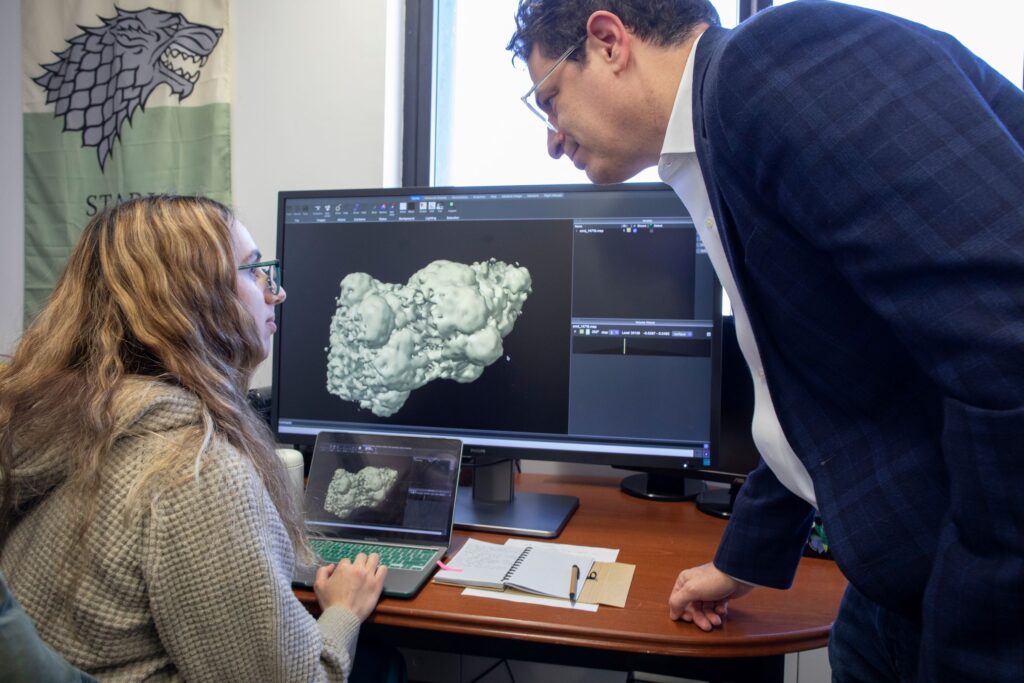The Icahn School of Medicine at Mount Sinai launched the AI Small Molecule Drug Discovery Center which was created to integrate AI with traditional drug discovery methods to identify and design new small-molecule therapeutics with unprecedented speed and precision.
Unlike conventional drug discovery, which can take years and cost billions, AI-driven approaches enable researchers to rapidly navigate a vast chemical landscape, including natural products, to pinpoint promising drug candidates, according to Avner Schlessinger, PhD, professor of pharmacological sciences and associate director of the Mount Sinai Center for Therapeutics Discovery at the Icahn School of Medicine.
By leveraging Mount Sinai’s expertise in machine learning, chemical biology, and biomedical data science, the center aims to bring innovative treatments to patients faster, particularly for diseases with urgent unmet needs, including cancer, metabolic disorders, and neurodegenerative diseases, noted Schlessinger, who will lead the center.
Three core areas
“Integrating artificial intelligence with cutting-edge chemistry and biology, we can dramatically accelerate drug discovery and develop new treatments for some of the most complex and pressing diseases,” said Schlessinger.
The AI Small Molecule Drug Discovery Center will focus on three core areas: designing novel drug-like molecules using generative AI, optimizing existing compounds to enhance their efficacy and safety, and predicting drug-target interactions to repurpose known drugs or natural products for new indications.
Experts in computational drug design at the new center will work on revolutionizing the drug discovery process by transforming traditional rational drug design approaches with guidance from AI-driven predictions. By training AI models on vast datasets of molecular structures and biological activity, researchers can anticipate the properties of new compounds before synthesis, potentially saving years of experimental work.
The AI Small Molecule Drug Discovery Center also plans to foster collaborations with leading pharmaceutical companies, biotech firms, and academic institutions to drive drug development. Additionally, it provides hands-on training for the next generation of scientists through seminars, internship programs, and AI-driven drug discovery hackathons, noted a Mount Sinai spokesperson.
The new Center builds on other recent Mount Sinai AI initiatives, including the launch of its new AI building and the recent announcement of the Center for Artificial Intelligence in Children’s Health.
“AI is fundamentally reshaping how we understand and target disease at a molecular level,” maintained Alexander Charney, MD, PhD, vice chair, Windreich Department of Artificial Intelligence and Human Health, and associate professor of artificial intelligence and human health, psychiatry, genetics and genomic sciences, and neuroscience at the Icahn School of Medicine. He is also director of the Charles Bronfman Institute for Personalized Medicine.
“By integrating artificial intelligence with genetic insights, we can move beyond conventional drug discovery to design precision therapeutics tailored to the underlying biology of neuropsychiatric and many other complex disorders,” he said.
Scientific advisory board
The center is guided by a scientific advisory board, composed of experts in drug discovery and machine learning:
- Jian Jin, PhD, professor, Mount Sinai Therapeutics Discovery and director of the Mount Sinai Center for Therapeutics Discovery at the Icahn School of Medicine. Jin specializes in synthetic chemistry and drug development with experience spanning both academia and industry.
- Ming-Ming Zhou, PhD, is the Dr. Harold and Golden Lamport Professor in Physiology and Biophysics and chair of the Department of Pharmacological Sciences at the Icahn School of Medicine. Also serving as co-director of the Drug Discovery Institute and professor of oncological sciences, Zhou’s research focuses on the mechanisms of gene transcription in health and disease, with an emphasis on epigenetic drug discovery.
- Marta Filizola, PhD, is the Sharon and Frederick Klingenstein-Nathan Kase, MD, Professor and dean of the Graduate School of Biomedical Sciences, an authority on computational biophysics of membrane proteins. With more than 25 years of experience, she has researched the use of AI and theoretical chemistry to advance drug discovery and development.
- Girish Nadkarni, MD, chair of the Windreich Department of Artificial Intelligence and Human Health at the Icahn School of Medicine, where he is also director of the Hasso Plattner Institute for Digital Health and the Irene and Dr. Arthur M. Fishberg Professor of Medicine. An expert in AI and digital health, he founded several companies and has several patents related to AI.
The Center will initially focus on building an advanced AI infrastructure and initiating key drug discovery projects. Over the next two years, Mount Sinai scientists say they plan to make significant breakthroughs in AI-driven drug design, further cementing its role as a leader in biomedical innovation

